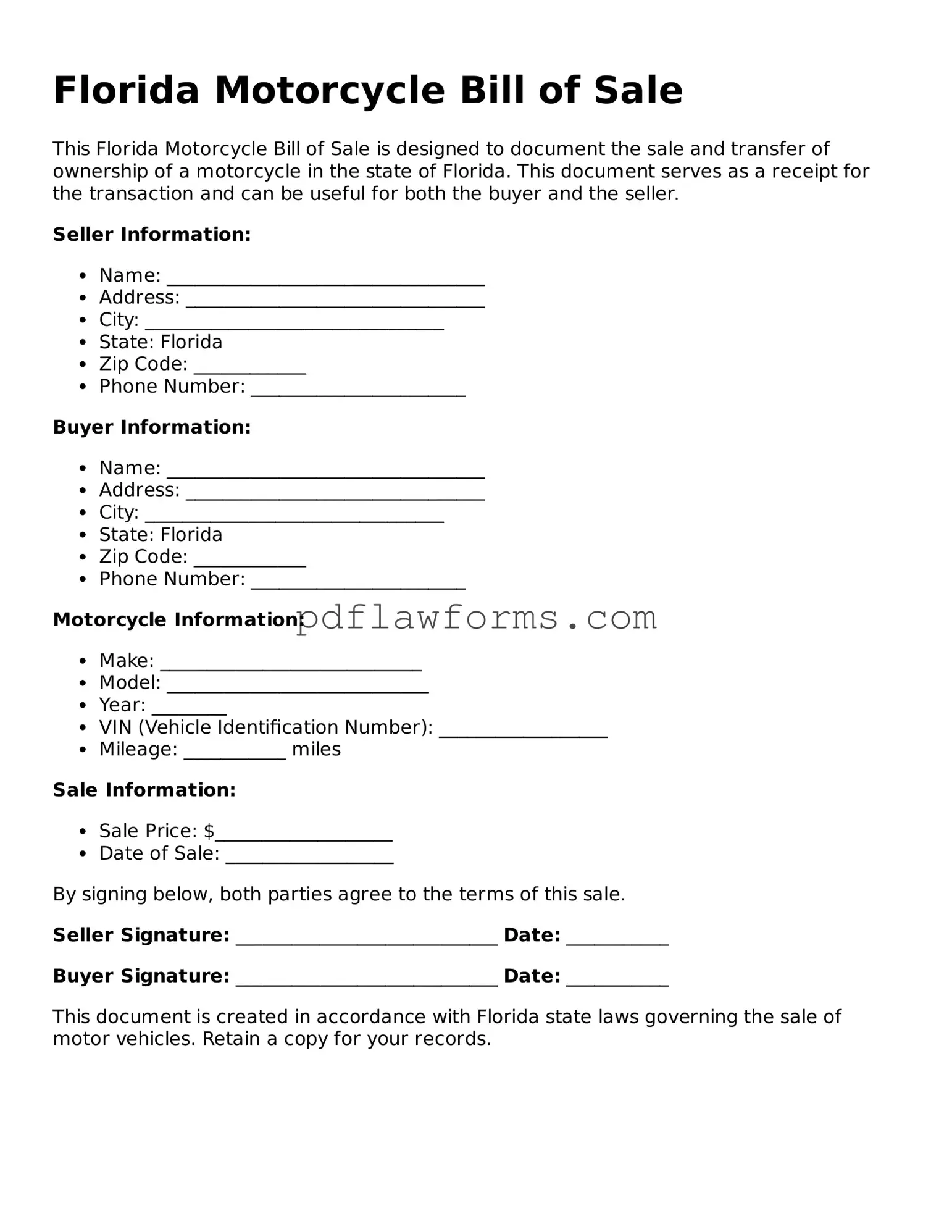Motorcycle Bill of Sale Form for the State of Florida
The Florida Motorcycle Bill of Sale form serves as a crucial document that records the transfer of ownership of a motorcycle from one party to another. This form not only provides legal protection for both the buyer and the seller but also helps in establishing the motorcycle's history. To ensure a smooth transaction, it is essential to fill out this form accurately and completely.
Start the process of transferring ownership by filling out the form below.
Make My Document Online

Motorcycle Bill of Sale Form for the State of Florida
Make My Document Online
You’re halfway through — finish the form
Edit and complete Motorcycle Bill of Sale online, then download your file.
Make My Document Online
or
⇩ Motorcycle Bill of Sale PDF
